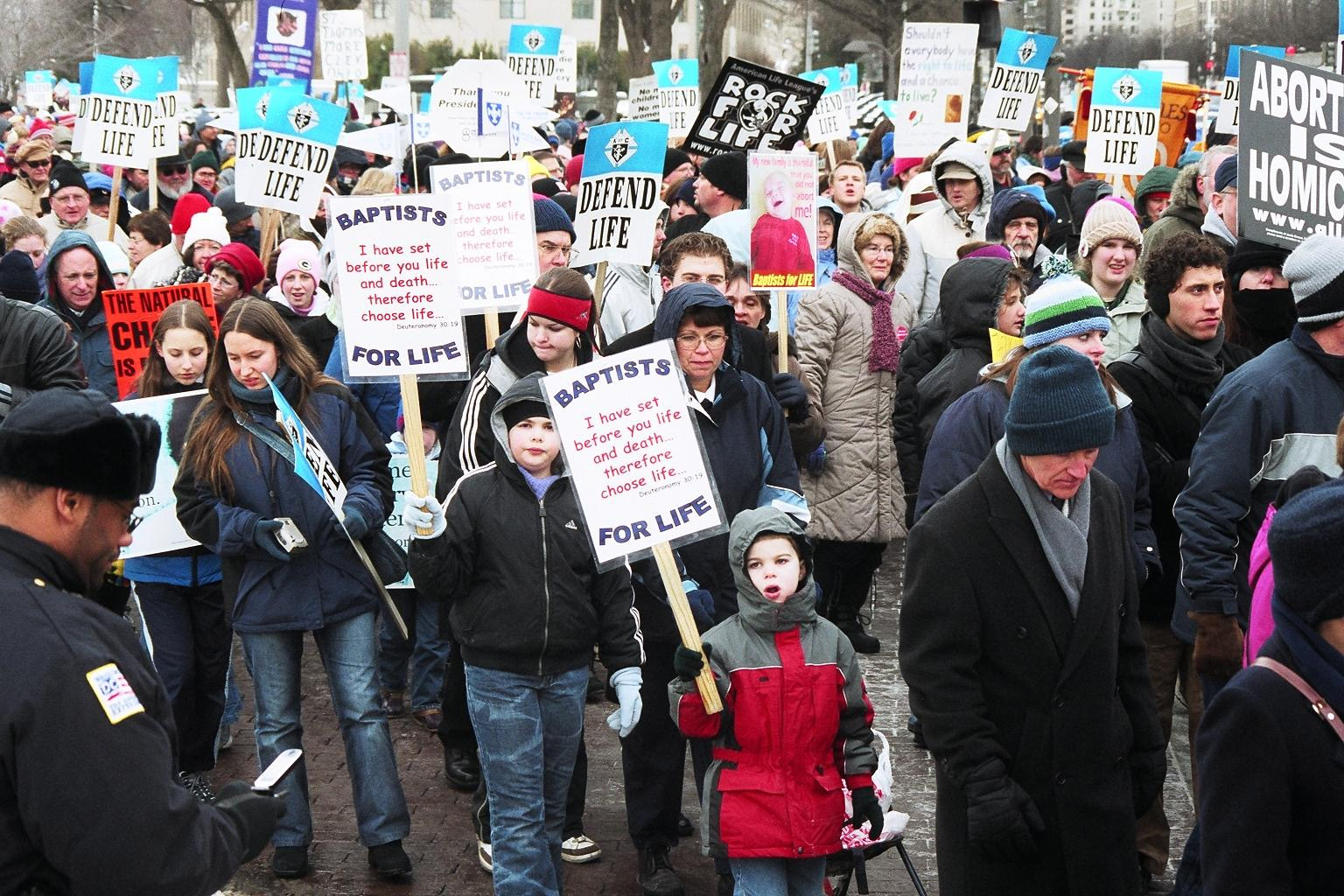
WASHINGTON (BP)–President Bush told tens of thousands of Americans gathered for the annual March for Life Jan. 24 that based on history, the pro-life movement will succeed.
Speaking by phone to the crowd assembled between the White House and the Washington Monument, the president said, “I encourage you to take warmth and comfort from our history, which tells us that a movement that appeals to the noblest and most generous instincts of our fellow Americans — and that is based on a sacred promise enshrined in our founding document — that this movement will not fail.
“The America of our dreams, where every child is welcomed in … life and protected in law may still be some ways away, but even from the far side of the river … we can see its glimmerings,” Bush said.
The massive crowd gathered with temperatures in the 20s and snow on the ground for the march, which has been held every year since the first anniversary of the 1973 Roe v. Wade decision legalizing abortion. Participants heard from Bush, as well as members of Congress and pro-life leaders, before marching up Constitution Avenue to the Supreme Court building.
The president thanked the pro-life marchers for their effort to establish a “culture that will protect the most innocent among us and the voiceless.” The pro-life movement is making progress, he said.
“I encourage you to take heart from our achievements, because a true culture of life cannot be sustained solely by changing laws,” Bush said. “We need, most of all, to change hearts. And that is what we’re doing, seeking common ground where possible, and persuading increasing numbers of our fellow citizens of the rightness of our cause.”
Bush, who was inaugurated to a second term Jan. 20, cited enactment of a ban on partial birth abortions and of protection for babies born despite attempted abortions as examples of pro-life achievements in his first term. Partial birth abortion is a procedure in which a doctor delivers an intact baby, feet first, until only the head is left in the birth canal. The doctor pierces the base of the infant’s skull with surgical scissors, then inserts a catheter into the opening and suctions out the brain, killing the child.
Bush also re-emphasized his administration “will not sanction the creation of life only to destroy it.” Bush established a policy in 2001 that prohibits federal funds for stem cell research that destroys embryos.
The White House announced later Jan. 24 that the president supports two pro-life measures that have been reintroduced, according to The Washington Times. They are:
— The Child Custody Protection Act, which would outlaw the transportation of a minor by a non-parental adult to another state for an abortion when the girl’s home state requires parental notification or consent;
— The Unborn Child Pain Awareness Act, which would require abortion doctors both to inform mothers of the pain an unborn child of 20 weeks or older experiences during an abortion and to offer anesthesia for the baby.
The most significant pro-life issue during the next four years is likely to be the confirmation of a new justice or justices to the Supreme Court. Chief Justice William Rehnquist, believed to be one of only three justices opposed to Roe v. Wade, is suffering from thyroid cancer. It has been predicted he might retire at any time. Retirement for other members of the court also has been rumored.
Supporters of Roe hold a 6-3 edge on the court, so it will require the confirmation of multiple Bush nominees who believe the far-reaching opinion has no constitutional basis in order to set the stage for a reversal. The high court issued two rulings on Jan. 22, 1973, that resulted in abortion being legalized throughout pregnancy for virtually any reason. The Roe opinion struck down all state laws prohibiting abortion, and the Doe v. Bolton ruling defined maternal health as a reason for permitting abortion late in pregnancy so expansively as to allow abortion for all reasons.
The National Right to Life Committee said on the day of the march a majority of the new members of Congress are pro-life. Seven of nine new senators are pro-life, and 22 of 40 new representatives hold the same position, NRLC said. Another three new House members are expected to vote with the pro-life side most of the time, according to the committee.
–30–













